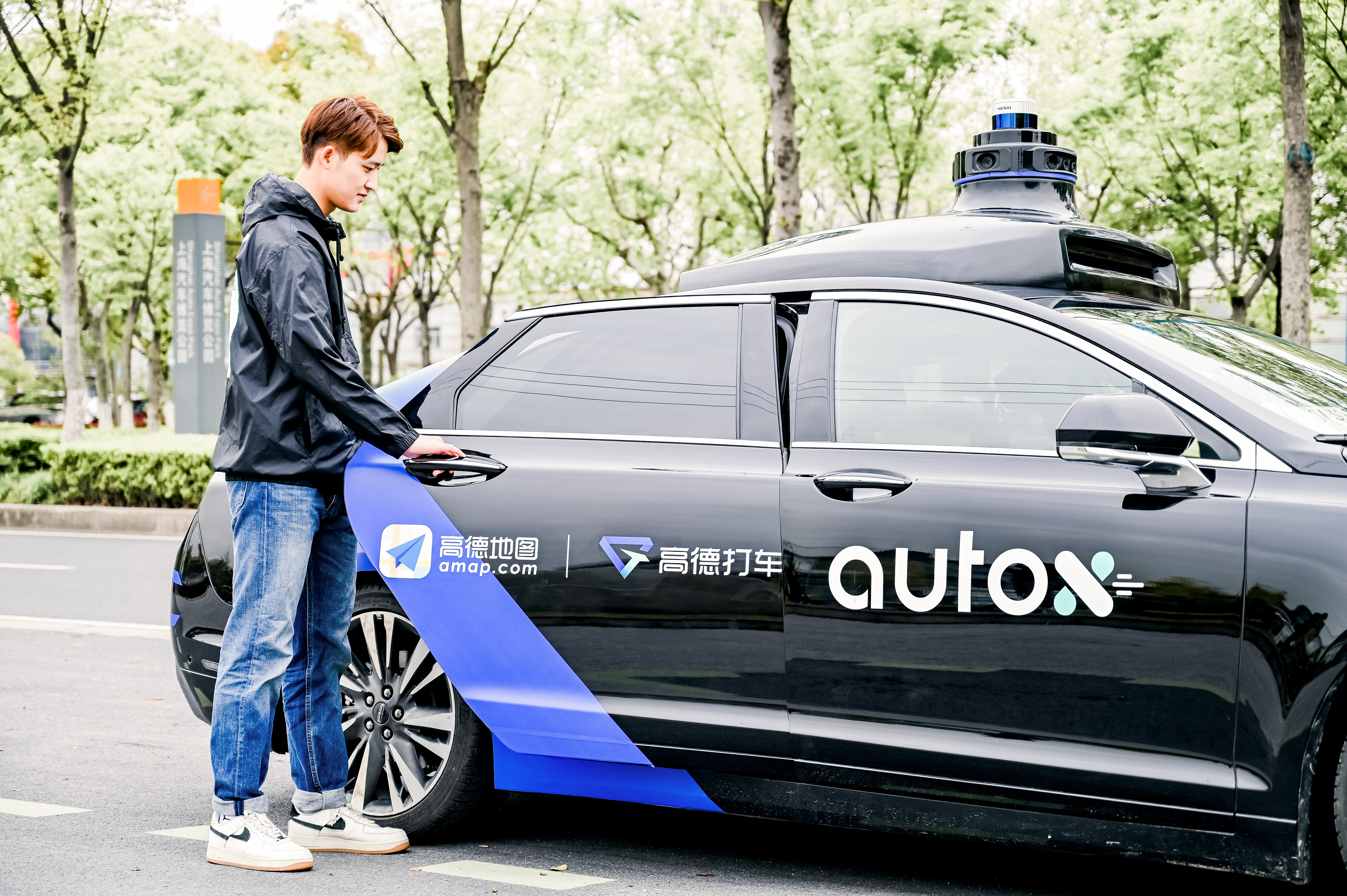Baidu has commenced paid services for the Apollo Robotaxis in China without a safety driver behind the steering wheel for the first time. The Baidu milestone coincided with another milestone by Alibaba-backed AutoX, who completed 100 consecutive days of their Robotaxi service in Shenzhen, China’s densest city.
The Baidu rollout operation was significantly different from previous demonstrations of its Apollo driverless taxis, which required a safety driver behind the steering. Instead, a safety member sits at the front passenger seat to respond to emergencies. The rollout operation currently involves 10 Apollo robotaxis operating within a 1-kilometer radius in western Beijing. The taxis pick and drop passengers on eight designated points in Shougang Park. Shougang Park is an emerging sightseeing destination and is expected to have a large influx of tourists and visitors during the 2022 Beijing Olympics.
On the other hand, a statement released today by AutoX says the company had enjoyed tremendous acceptance among Shenzhen residents since it began the Robotaxi project in January. AutoX says their robotaxis is fully driverless and does not need a safety member either behind the steering or inside the vehicle. The company says that it is a significant milestone that it had achieved with the 100 days of commercial operations.
Founder and CEO of AutoX, Professor Jianxiong Xiao, in a statement made public, said that the first 100 days had been an enormous step forward for the company and a milestone for the entire industry in China. He also said that the feedback they had gotten so far would help them improve its service to make the driverless journeys a fantastic experience.
AutoX has enjoyed much support from the Shenzhen city authorities, who continue to provide a firm regulatory framework for AutoX to thrive in the city. The city will soon pass legislation to allow Level 4 self-driving cars on its roads and is poised as the first city to do that, ahead of Beijing, where restrictions persist. To mark the 100-day milestone, AutoX has released a video (find below) of its robotaxi operations in Shenzhen. The video shows how the AutoX vehicle responds to different situations on the road, both commuters, and motorists alike. The robotaxi captured in the AutoX video took 16 ride orders and navigated through several iconic landmarks in the city.
The Apollo taxi service is open to adults between the ages of 18 and 60 and costs about $4.60 for each ride. The sight of the robotaxis drew a sizable number of onlookers who wanted to get a closer look at the vehicles. This forced the taxis to repeated halts. Most of the passengers reported a smooth ride inside the taxis. The Apollo Go app is what customers can use to order for the driverless taxi service, and their identities must be verified before they can gain access to the vehicle. The car begins to move when it detects that the passengers have secured their seatbelts.
While there are still concerns about the safety of driverless vehicles on public roads, Baidu feels that the driverless taxis have gone through sufficient safety tests and are indeed safe for use. Baidu says that its Apollo Go Robotaxi service tests across several cities in China have been very successful, with over 200,000 passengers within the past year. The company hopes to scale up the rollout of the Apollo driverless taxis to 30 cities within three years.
AutoX also says it will continue improving and expanding its product offering by unveiling new features to its Robotaxi service. These include an upgrade of the sensor hardware system to the AutoX Gen 5 setup, which is more effective, having six hi-res lidars and eight hi-res 4D imaging radars.
RELATED:
- AutoX partners Honda to install its Autonomous Driving tech on Honda cars in China
- Baidu obtains permit to start testing paid Robotaxi services in Cangzhou, China
- AutoX launches its driverless RoboTaxi service in China
(via)







